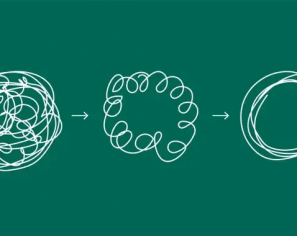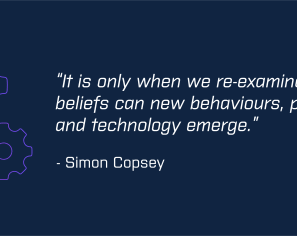June 7, 2016 | Software Consultancy
In my previous blog post I explained to you the Seven Deadly Sins of Project Managers. With that post in mind, I would like to share with you my views on what a project manager needs to overcome these sins and become a valuable member of the team, and ultimately helping to achieve success on the project.

Following the relationship between mistakes and sins, this time I am using the 7 heavenly virtues to demonstrate the good desired behaviours of a project manager. As it was the case with the sins, I believe these virtues can be applied to everybody, not only project managers. Quite often all the virtues can be linked to each other in a virtuous circle, or become a consequence of one another.
Do not try to copy processes or behaviours from a different project/team to your current one. The project manager(“PM”) needs to understand the uniqueness of every project. Even having the same project team in two different projects, the context of each project is not the same, as both projects would have different goals and expected outcomes. The ability to adapt and make the team capable of adapting to the different context would measure how good the PM is.
Getting the team in the improvement mode will require the PM to be a servant leader. The PM will need to facilitate the removal of impediments. The team needs to know you will help them to become more productive. Do not hesitate to ask the team if there is any blocker or impediments, and of course do whatever it takes to remove the issue.
I have seen PMs who were only worried about themselves and their well being within the company. I always think that the best way to ensure you improve your wellbeing is to ensure that the members of your team are happy, and ensure they have everything they need to work. Most of the time people are surprised when a PM asks them: “Hi Alex, is there anything you need to be happier and more comfortable here?” People need to feel that they are not a number/resource within the company – they need to feel they are people. So, ask your project team what they need, and try to get it! Whenever they feel you actively seek to improve their day-to-day work they will do the same for you, and of course they will work better. Happy people always work better!
Do not forget to encourage continuous improvement mentality within the team. The satisfaction you get whilst improving your own knowledge is priceless. To keep the team focused on the positivism you need to encourage everyday small wins, keeping the team morale high. Small things like finding (and fixing!) the cause of one bug is something to be proud of and to be happy!
Say “no” to the sponsors. I know what you are thinking right now… “Antonio has finally become crazy! We cannot say NO to the sponsors like that!” Well, you are right! (and not only for me being crazy… We cannot say “no” like that without any reason… We need to evaluate what the sponsor is asking us, evaluate with the team and explain whether it is a good idea or not to implement the new requirement. Do you think that the sponsors and senior management prefer to be surrounded with people constantly saying “yes” or with confident people willing to explain why they are wrong? From my experience, I can tell you they will prefer the second type of people.
Be a sponge of knowledge. You have to admit and assume that you do not know everything, so you need to keep up to date, of course you are not required to be as techie as the lead developer, but you need to know enough about the technologies being used to understand why the risk/issue the techies are raising is important and help them to find the possible solutions to solve/mitigate the issue/risk. You do not need to be an expert in every field, but understanding every member of the team is the key to be able to react on time and in an useful way.
One of the keys for everybody in a company, and probably one of the most important ones for a PM, is the capacity of building strong working relationships. Try to talk to each other, find out what they do like and what they do dislike. Sometimes a five minute chat by the coffee machine will improve your working relationship. Be more human and think of the others as human beings and not numbers or resources within the company. Having this in mind, you have to remember to always facilitate the communication, sometimes to arrange a face-to-face meeting between two members of the team it is the only thing needed to reach an agreement on any difference of opinions regarding the project.
In one of my previous companies the developers were happy working in my team, I was always protecting them during the worst moments – when anything didn’t go well I was owning the failure without blaming them. As they saw I was always protecting them, then they were always supporting me.
Quality first! Even if it takes longer! The PM should always keep this in mind to ensure that the quality of the work the team is performing is also delivering value to the company. An important part of this is linked with the Chastity – we need to help the team and the sponsors to work together to define high quality features giving value to the company. All together we must discard the features for which value to the company is uncertain, and ensure that the features released to production met the quality standards fixed at the beginning of the project.
Understand the risks raised by the team (ask them again if you don’t understand them the first time!). Work with the team to solve and mitigate the risks and issues.
Be transparent while generating reports, base them on facts, find out at the beginning of your engagement within the project what information is actually meaningful for the sponsors and for the team. Then generate reports based on the meaningful and factual information. I have seen many times the same kind of reports generated for every project of the company. The useful information is usually different depending on the context of the project. Understand the big picture, find out what role the project you are managing has within the company values and goals. Once you understand this you would be able to think of the best ways to improve and achieve the projects being in line with these values and goals.
This one is usually the hardest for the PMs I wrote about on my previous blog post. No matter the number of years of experience of the PM, or the number of projects delivered on time, on budget and on scope, there is one thing the PM needs to understand and assume – you can always do better and improve! There is always a better way of doing things (also a worse way too!). The PM needs to be willing to change and adapt on every project.
One of the ways to improve is to put yourself at the service of the team. I always think that the developers, technical specialists, infrastructure engineers… all of them are able to perform magic with their work, so as a PM put yourself at their service to make sure they can perform their magic! And of course, don’t take the credit for yourself! The credit is for the whole team!
One important thing to keep in mind if you are a PM is this – if you are doing your job correctly and the project is a success you would appear to be invisible. Do not worry about that, because that’s the way a good PM behaves, ensuring the project runs smoothly and with success, without being the star.
The IT world is changing – PMs need to change as well. Before PMs were more focused on planning, and we could say that PMs “manage” projects. For me the big difference is that right now PMs “facilitate” projects.
PMs should be the people in the service of the team, facilitating the project, removing impediments and facilitating the day-to-day work of the team. Before PMs were usually on the sponsor’s side, and now I’m not telling you to stand on the developer’s side (because now you should work to ensure that there are no sides), but you need to ensure the communication between the sponsors and the team is fluent and provides value to the company. Please encourage the communication and fill the gap between the ‘Business’ and ‘IT’ to make sure that everybody understands that everyone is part of the same team – the company we all work for.
The project manager is the one managing the communication flow – if you are a project manager then ensure that everybody is able to communicate to each other!
Please, let me know the subject you would like me to cover in my next blog post, and of course, please do not hesitate to get in touch if you have any questions or would like to share your views about how a project manager should be. You can find me on twitter @Mind_of_AC, and via email at antonio.cobo@opencredo.com
This blog is written exclusively by the OpenCredo team. We do not accept external contributions.

Agile India 2022 – Systems Thinking for Happy Staff and Elated Customers
Watch Simon Copsey’s talk from the Agile India Conference on “Systems Thinking for Happy Staff and Elated Customers.”
Lean-Agile Delivery & Coaching Network and Digital Transformation Meetup
Watch Simon Copsey’s talk from the Lean-Agile Delivery & Coaching Network and Digital Transformation Meetup on “Seeing Clearly in Complexity” where he explores the Current…
When Your Product Teams Should Aim to be Inefficient – Part 2
Many businesses advocate for efficiency, but this is not always the right goal. In part one of this article, we explored how product teams can…